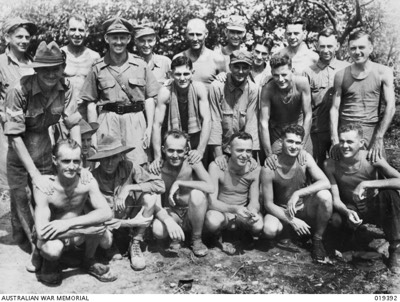Freedom in Captivity
There was a man up the street from my childhood home by the name of Jim. He was kind, gentle, generous. He left gifts of vegetables from his garden on our doorstep early in the morning. But one thing always puzzled me as a child. Why did he only have one arm?
I later learned that he lost his arm as a prisoner in Changi POW camp during WWII. Jim knew about captivity. In Changi, the things most important to him were withheld - freedom, food, family. Not only that, but he had also lost his future. What could he go back to after the war as a man with one arm? He would be a prisoner for life, or so I thought.
But as I got to know Jim, I learnt differently. He showed no anger, hatred, or bitterness toward his captors and no regret. He didn’t see himself as a prisoner either, because the one thing most essential to his life was the one thing no prison could take away - his friendship with Jesus. He could be in solitary confinement but was still not a prisoner because he had with him the thing he treasured most. The Japanese couldn’t touch it. Losing his arm couldn’t touch it. Even death can’t touch it because a relationship with Jesus is for eternity. The bible says, “Nothing can ever separate us from God’s love. Neither death nor life, neither angels nor demons, neither our fears for today nor our worries about tomorrow—not even the powers of hell can separate us from the love of God that is revealed in Christ Jesus our Lord” (Romans 8:38-39).
Neil Percival
I later learned that he lost his arm as a prisoner in Changi POW camp during WWII. Jim knew about captivity. In Changi, the things most important to him were withheld - freedom, food, family. Not only that, but he had also lost his future. What could he go back to after the war as a man with one arm? He would be a prisoner for life, or so I thought.
But as I got to know Jim, I learnt differently. He showed no anger, hatred, or bitterness toward his captors and no regret. He didn’t see himself as a prisoner either, because the one thing most essential to his life was the one thing no prison could take away - his friendship with Jesus. He could be in solitary confinement but was still not a prisoner because he had with him the thing he treasured most. The Japanese couldn’t touch it. Losing his arm couldn’t touch it. Even death can’t touch it because a relationship with Jesus is for eternity. The bible says, “Nothing can ever separate us from God’s love. Neither death nor life, neither angels nor demons, neither our fears for today nor our worries about tomorrow—not even the powers of hell can separate us from the love of God that is revealed in Christ Jesus our Lord” (Romans 8:38-39).
Neil Percival
